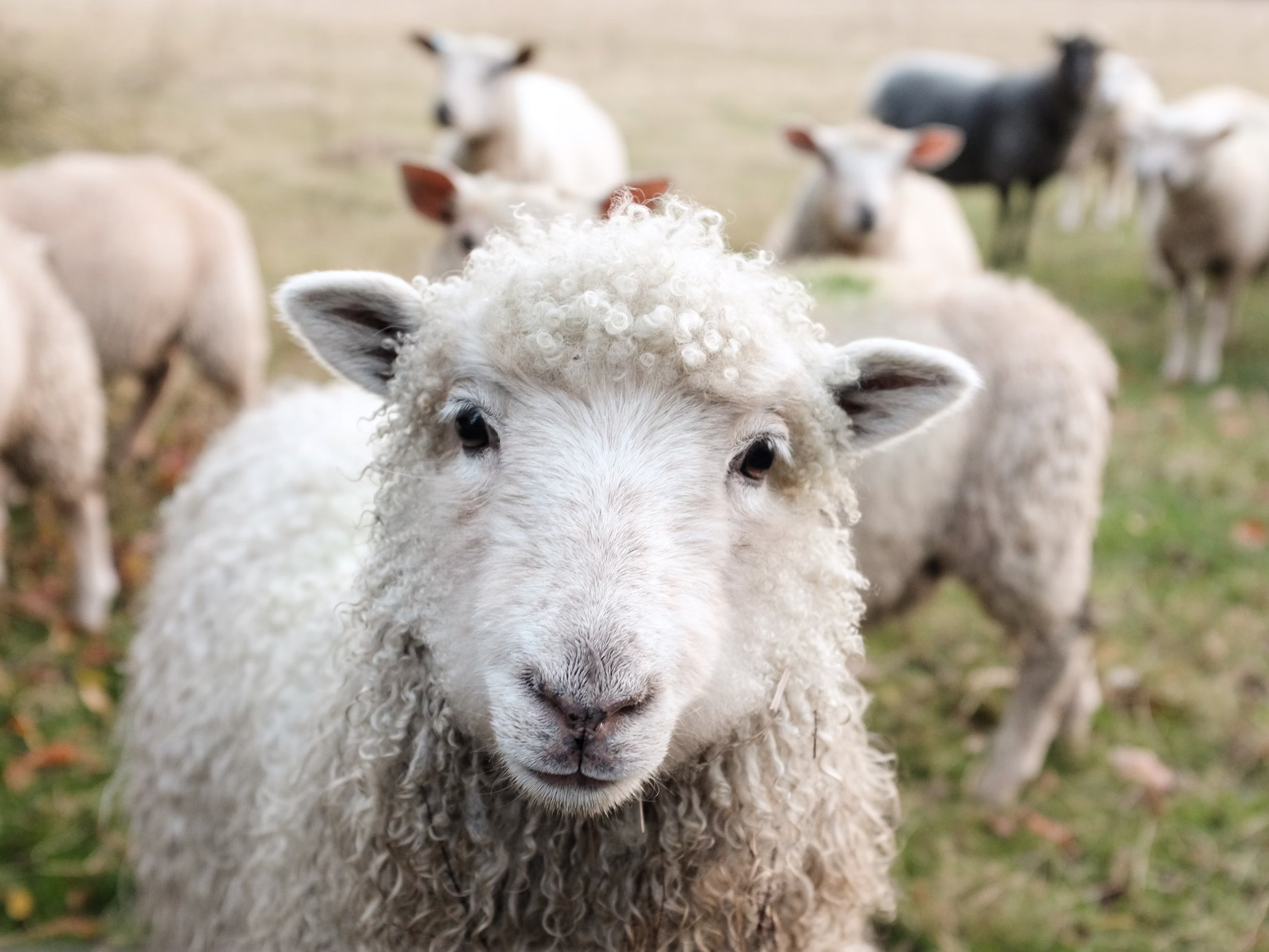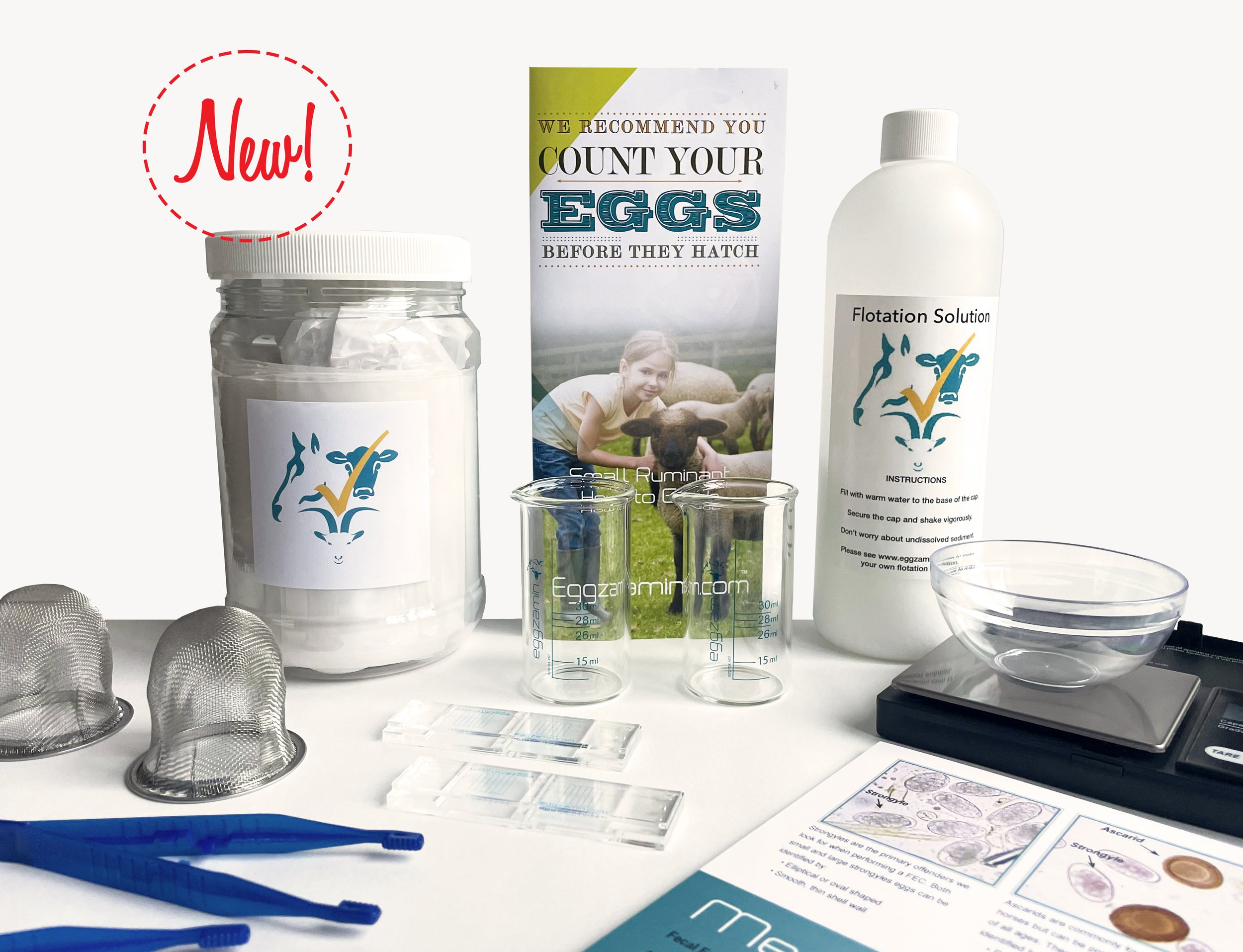For now, and for the future.
Small Ruminants and Camelids
Internal parasites are arguably the most important aspect of small ruminant production. The most important internal parasite is the Barber Pole Worm (Haemonchus contortus) and can be found in sheep, goats, alpacas, and llamas. The widespread anthelmintic (“dewormer”) resistance displayed by the Barber Pole Worm should be a forewarning to equine producers as to how big of a problem they might be soon facing. A modified McMaster Fecal Egg Counting protocol can be applied to small ruminants and camelids in order to assess the internal parasite burdens of these animals.
THE EGGZAMIN™ SMALL RUMINANT AND CAMELID KIT
We have designed a Modified McMaster Fecal Egg Counting kit for small ruminants and camelids that provides you with everything you will need in order to accurately assess the internal parasite burdens of your animals. This customized testing kit will allow you to determine the type of parasite eggs and level of infection in the absence of costly shipping and laboratory fees that are typically associated with acquiring fecal egg count results. This tailored kit will allow you to:
Quickly administer a dewormer to individual animals based on a treatment threshold (which will reduce/slow the progression of anthelmintic resistance on your operation)
Test the effectiveness of your chosen dewormer that can potentially save lives of animals in dire situations (by conducting a Fecal Egg Count Reduction Test)
Make important culling and breeding decisions based on parasite tolerance (based on the 80:20 Rule).
Working in conjunction with the American Consortium for Small Ruminant Parasite Control (ASCRPC) to bring fecal testing to small ruminant owners and breeders, we gratefully link to their site for the latest in: Managing Internal Parasites in Sheep, Goats and Camelids.




